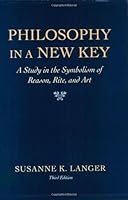
## Metadata
- Author: [[Susanne K. Langer]]
- Full Title: Philosophy in a New Key
- Category: #books
## Highlights
- The great contribution of Freud to the philosophy of mind has been the realization that human behavior is not only a food-getting strategy, but is also a language; that every move is at the same time a gesture. Symbolization is both an end and an instrument. ([Location 712](https://readwise.io/to_kindle?action=open&asin=B005I3W7BO&location=712))
- A term which is used symbolically and not signally does not evoke action appropriate to the presence of its object. If I say: "Napoleon," you do not bow to the conqueror of Europe as though I had introduced him, but merely think of him. If I mention a Mr. Smith of our common acquaintance, you may be led to tell me something about him "behind his back," which is just what you would not do in his presence. Thus the symbol for Mr. Smith - his name - may very well initiate an act appropriate peculiarly to his absence. Raised eyebrows and a look at the door, interpreted as a sign that he is coming, would stop you in the midst of your narrative; that action would be directed toward Mr. Smith in person. ([Location 805](https://readwise.io/to_kindle?action=open&asin=B005I3W7BO&location=805))
- Symbols are not proxy for their objects, but are vehicles forthe conception of objects. To conceive a thing or a situation is not the same thing as to "react toward it" overtly, or to be aware of its presence. In talking about things we have conceptions of them, not the things themselves; and it is the conceptions, not the things, that symbols directly "mean." Behavior toward conceptions is what words normally evoke; this is the typical process of thinking. ([Location 809](https://readwise.io/to_kindle?action=open&asin=B005I3W7BO&location=809))
- Another recommendation for words is that they have no value except as symbols (or signs); in themselves they are completely trivial. This is a greater advantage than philosophers of language generally realize. A symbol which interests us also as an object is distracting. It does not convey its meaning without obstruction. For instance, if the word "plenty" were replaced by a succulent, ripe, real peach, few people could attend entirely to the mere concept of quite enough when confronted with such a symbol. The more barren and indifferent the symbol, the greater is its semantic power. Peaches are too good to act as words; we are too much interested in peaches themselves. ([Location 981](https://readwise.io/to_kindle?action=open&asin=B005I3W7BO&location=981))